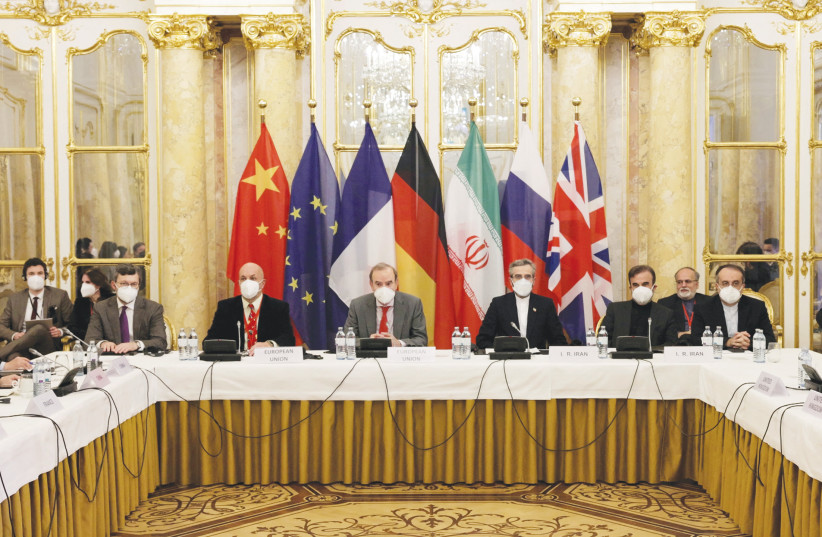Last week saw complete chaos regarding Iran-US-Russia relations, at times stranger than Alice falling down the rabbit hole into Wonderland.
Moscow has called both Washington and Tehran’s bluffs, making it clear that both sides are desperate for a deal and furious with Russian President Vladimir Putin for potentially breaking up the party in the eleventh hour.
Although Israel and the moderate Sunni Arab states are rooting for the deal to fall apart because of broader objections to loopholes it leaves for Iran, many may be missing that the deal could actually still go through without Putin.
Legally speaking, the 2015 JCPOA Iran deal is still in effect, even though both Washington and Tehran have mostly withdrawn from compliance.
In that sense, all that needs to be done to restore the deal is for US President Joe Biden and Iranian Supreme Leader Ayatollah Ali Khamenei to return to compliance. And they can do that without Putin.

How? The US lifts sanctions and Iran returns to the JCPOA’s nuclear limits.
Except there is one major logistical issue.
Currently, Iran has enough enriched uranium for around four nuclear weapons, if the Islamic Republic decided to weaponize it.
Under the deal, it is supposed to limit itself to enough uranium for only a third of one weapon, and at the low 3.67% enrichment threshold, far below the 60% and 20% thresholds it has achieved.
The presumed solution has been that, like in 2015, Iran would ship its excess uranium out to Russia.
That means that the one problem that would need to be solved if Moscow refuses to cooperate in any way would be where Khamenei’s excess uranium should be shipped.
According to Institute for Science and International Security President David Albright, there are other countries that can receive Iran’s fresh excess stocks of enriched uranium.
Though he overall opposes the current deal’s terms as too lenient for the Islamic Republic, he noted as a logistical matter that, “For up to 5% [of] recent enriched uranium, Iran is supposed to get back [an] ‘equivalent’ amount of natural uranium. In theory, any major nuclear supplier could take” the uranium if it got approval from the relevant national authorities to send converted natural (less dangerous) uranium back to Iran.
For example, he said that “Kazakhstan could send natural uranium," he gave as an example. "So, this part seems doable without Russia.”
Next, he said, “Where it gets far more difficult is with uranium enriched above 5%, because technically [Iran] wants to be able to get some of it back to use for [the] Tehran Research Reactor, or if it withdraws from [the] deal,” to use in other ways.
He warned that the 20% enriched uranium is in this difficult category, given that “the deal allows Iran to get allotments of up to five kilograms [of] 20% when it can show a justified need.”
“I doubt many countries would want to guarantee this or could get a license from their authorities to allow such an export to Iran," he said. "But if the US, Britain and France were determined, perhaps they could locate a willing country."
Albright said that, “A reasonable work-around is to blend down all uranium enriched above 5% to natural uranium or at least to uranium enriched [to] less than five percent.”
In other words, there are a variety of technical issues that would need to be resolved, but Russia was never the only country that could receive Iran’s excess uranium. It was just the most convenient and seemingly reliable option by both Washington and Tehran.
But if circumstances have changed, and both America and the Islamic Republic want the deal, Russian opposition will not tank it.
So the real and only decisive question which has hung over the world for 15 months since Biden took office remains the same: Can he and Khamenei reach an understanding which both sides can live with or not?
